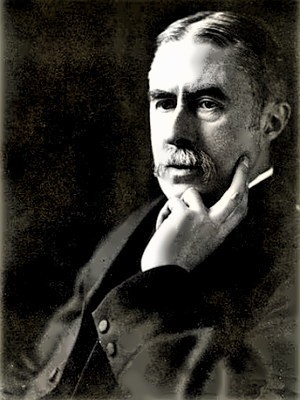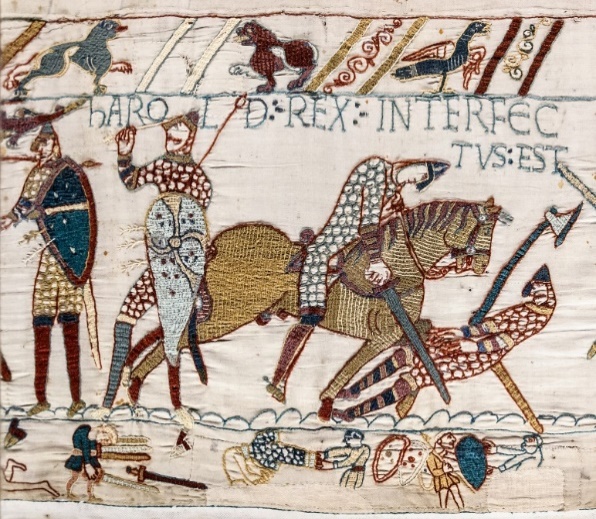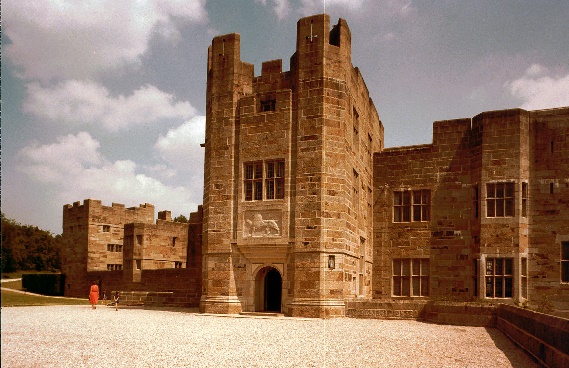Introduction
We have reached the point when SUES intends to resume activities on traditional lines. Members (existing and prospective) are invited to take out membership for 2021-2, which will be valid from September 1st. The basic subscription has been increased to £10 in the light of the extra opportunities that SUES now offers, although the fee per session for long courses remains at £5. This means that the overall cost per course will vary with the number of sessions.
What do you get for your SUES subscription?
- Attendance at Friday afternoon talks (four currently being planned).
- Regular editions of our journal, SUES FORUM, sent out either by email or post.
- Option to register for up to three multiple-session courses on payment of a substantially subsidised fee.
- Attendance at any other events SUES might organise, e.g. visits.
Refreshments will be available at the end of Friday meetings and at an appropriate break in the course sessions.
This edition of FORUM is devoted almost entirely to administrative and practical matters. For your immediate attention we provide details of the proposed programme for 2021-22 and notice of our first Friday afternoon meeting. We then provide a brief record of the AGM followed by some personal reflections by Roger Mitchell. There is one other item, a contribution about Joan Eaves, who died on the 22nd July at the age of 93. Joan had been a member of SUES for many years and remained active and involved right up to her death after a heart attack. Her commitment to life-long learning exemplified the values of organisations like SUES and the University of Liverpool Continuing Education Department. Although we cannot make a commitment to publish an obituary for every member who sadly passes away, there are occasions, when interest in the life story makes this appropriate.
Taking account of the opinions of members we have decided to continue with FORUM, both as a means of providing information and a source of articles of educational interest. These articles are written by members and we are, therefore, very dependent on contributions. If you have any ideas, please discuss them with John Sharp or any member of the committee, or indeed send a completed item. There is really no limit on topic, though we try to keep the maximum length at 1000-1500 words (we have not always achieved this!). Shorter items are also welcome.
As an additional page of this FORUM you will find a subscription and registration form for 2021-2022. Please provide full details and send it to John Sharp as soon as possible. You may pay by cheque or bank transfer. It is important to note that although you have the option of registering for one, two or three courses, this is not a condition of membership. Also, you can book for one (or none) now and, if you wish, the others later. For your convenience we will also send this form and the programme as attachments, so you can print them off and use them separately.
Forthcoming Meeting
A. E. Housman – A Shropshire Lad
Friday September 17th at 2.30 pm at All Saints Church Hall

Is hung with bloom along the bough,
And stands about the woodland ride
Wearing white for Eastertide.’
We think of A.E. Housman (1859-1935), if we think of him at all, as a poet, but he was actually the foremost classical scholar of his day and, for him, poetry was very much a secondary activity. Today, he is remembered not for his great scholarship but for his cycle of poems, ‘A Shropshire Lad’ written in a simple, accessible style and set in an idealised version of Shropshire ‘the land of lost content’. It was an instant best seller when first published in 1896 and has been in print ever since. Housman was a complex, sometimes difficult man but by scrutinising his life, we can perhaps come to understand the forces that shaped him and his poetry. We will also place him within the rich literary heritage of Shropshire and examine the wider context of his legacy.
Christine Vasey
Venue
New members please note that access to All Saints Church Hall, which is near Hesketh Park, Southport, is from Park Road PR9 9JR. The church itself is on Rawlinson Road, but you should not approach the Church Hall from this side. There is quite ample car parking space off Park Road next to the Church Hall.
Programme for 2021-22
The programme for 2021-2022 will consist of three multiple-session courses and four single-day events. All activities will take place at All Saints Church Hall, Park Road, Southport, PR9 9JR; the longer courses on Mondays at 10:30 am and the single day events on Fridays at 2:30 pm. Sessions in the long courses will last two hours and in the shorter meetings talks will take 45-60 minutes.
England Under the Norman Kings and Queens (Autumn 2021)
Peter Firth
10 Sessions: Sept 27; Oct 4, 11, 18, 25; Nov 1, 8, 15, 22, 29
Course fee: £50

The Norman Conquest and its aftermath, covering barely a century and a quarter, is regularly the subject of much interest in studying the history of the British Isles. This course explores the changing relationships between successive Norman kings of England, their barons and the English Church up to the beginning of the Angevin dynasty. Particular attention is given to the reigns of William the Conqueror and the two sons who succeeded him, the cause and consequences of the civil war between 1139 and 1153, as well as the restoration of royal authority during the early reign of Henry II. As part of a survey of the English Church, consideration is given to the extension of papal authority and the forces which sought to resist it, culminating in the quarrel between Henry II and Thomas Becket. It will also focus on Queenship and roles played by the various women whose contribution throughout the Norman dynasty cannot be understated.
The Country House in the 20th Century (Winter 2022)
Roger Mitchell
8 Sessions: Jan 10, 17, 24, 31; Feb 7, 14, 28; Mar 7
Course fee: £40

Previous courses have taken the English Country House from its late Mediaeval origins to its Victorian climax. Its 20th Century story is very different but equally fascinating. The emphasis shifts from building new houses to finding ways to adapt existing ones to a very different and very dangerous world. Many houses (and some owners) were lost en route but most survived and a few people were brave enough and rich enough to create new houses and even use new styles and new materials.
This eight session course will introduce remarkable houses like Castle Drogo, Eltham Palace and Eaton Hall and equally remarkable people like Vita Sackville-West, James Lees-Milne and Deborah Mitford, Duchess of Devonshire. Although this course is the culmination of a sequence, it is equally open to those who have not attended earlier sessions.
The Secret Life of the Human Brain (Spring 2022)
Dr. Alan Potter
7 Sessions: Apr 25; May 2, 9, 16, 23, 30; June 6
Course fee: £35

Over the centuries, and despite being essential for life, the workings of the brain have often remained a mystery. Scientific study and dissection provided some evidence but it is only now through modern techniques, including therapy and surgery, and instruments such as MRI scanners, that we more fully understand the brain and can truly wonder at what it achieves.
Using up-to-date research, illustrations and images, this course uncovers the origin of the brain, describes the functions of each part and demonstrates how they connect with each other and the whole body to provide a sophisticated driving force. In this way, common myths about the brain will be debunked and advice shared on how, as we get older, we can keep it healthy, happy and active.
Single Session Events
A. E. Housman – A Shropshire Lad (Christine Vasey)
September 17th
Science and Pseudo-Science (Dr Alan Potter)
December 10th
Further meetings in February and June are to be arranged.
Access to all events is available on payment of an annual subscription £10 per person to SUES. There will be no further charge for single-day events, but there is a fee equivalent to £5 a session for each of the multiple-session courses. These fees compare favourably with other similar events provided by universities etc., and they are subsidized out of the funds available as a result of the recent bequest to SUES.
Application for SUES membership and registration for a multi-session course (or courses) are made to the membership secretary (details below). Cheques should be made out to Southport University Extension Society, but we have now introduced the option of bank transfer.
Report on the Society’s AGM
The Society’s Annual General Meeting was held on Friday 23rd July at All Saints Church Hall. Members were sent the documents for the AGM along with the July edition of Forum. These included the reports from the Acting Chair and the Treasurer, which along with the election of officers and committee were approved by the meeting. The formal minutes were as follows.
Minutes of Annual General Meeting 2021
This was the first in person meeting of the Society since the pandemic forced a move to on-line meetings. It was well attended with almost 20 members present and another dozen sending apologies
- The minutes of the 2020 AGM were accepted
- The Acting Chair’s Report was accepted
- The Treasurer’s Report was accepted
- Officers and Committee were elected
Chairman: Alan Potter
Treasurer: Bob Neate
Secretary: Roger Mitchell
Membership Secretary: John Sharp
Other Committee Members: Margaret Boneham, Peter Firth, Mary Ormsby, Christine Vasey.
The reports of Chair and Treasurer showed that the society had survived pandemic and lockdown and was in good financial health. No membership fee had been charged for 2020-2021 but would resume in September 2021 with an annual fee of £10 per person. It was hoped that the 2021-2022 programme would not be affected by the pandemic and its consequences.
Roger Mitchell
The Positives of 2020-2021
Some Personal Reflections
The minutes are, I hope, a true record of proceedings, but, as always, they tell only part of the story. John Sharp, who, as editor of Forum, usually reports on Society activities, was unable to attend because of longstanding family commitments and so it falls to me as secretary to try to capture something of the atmosphere of what was a rather special occasion. The date coincided with the first week of ‘freedom’ following the lifting of most government restrictions. Bars, nightclubs and SUES were free to operate as usual. This was the first time that we had held an indoor meeting since the early spring of 2020 and we were careful not to let ‘freedom’ go to our heads. On a hot, sunny day, we met in a cool and well-ventilated main hall and retained social distancing and other precautions. About 20 people attended and there were a dozen apologies for absence. Many of those not able to attend said that they hoped to attend events over the coming year. Both they and those attending said how much they appreciated the regular editions of Forum, which kept them in touch and provided interesting material.
It was good to renew personal contact and to catch up with news, but it was with great sadness that I had to announce the death of Joan Eaves, who died in hospital the previous day. Back in June, she had telephoned me to confirm that she intended to be at the AGM and she sounded just the same as ever – the voice and manner sounded more like a senior executive in her 50s rather than a retired lady in her 90s. I told the meeting that without Joan, I and quite a number of others might not have become involved with SUES. She could be described as the godmother of the present society because, as a longstanding member of both SUES and University of Liverpool Continuing Education, she had helped bring them together. When fees for the Monday morning classes that Peter Firth and I led rose above £100, we wondered how to carry on. With her usual directness, Joan drew my attention to SUES, which she described as a society with plenty of money but not enough members. Contact was established and the present arrangements developed with the full support of Liverpool CE. It is not the least of her many achievements in a long and productive life.
After the formal part of the meeting, we had a number of reflections on ‘The positives of 2020’. It was appropriate that we had contributions from our three new committee members, Mary Ormsby, Margaret Boneham and Christine Vasey as well as old stagers, Peter Firth and me.
Mary and Peter reported on activities that they had been involved with in Scarisbrick and Crosby respectively. In their different ways, both had maintained and developed community involvement making use of modern technology when appropriate. Sometimes the humble telephone or email was sufficient, but zoom and social media were also available and new skills were developed. At Scarisbrick, the church had played a leading role in bringing the community together. Existing contacts had been maintained but, just as important new ones had been made and new projects had been embarked upon. At Crosby, the time, the energy and the surplus possessions of locals had all been used to help those who were facing a particularly severe crisis. A foodbank had provided more than 3,000 bags of food and toiletries and two large pallets had provided books, toys and football shirts for children in South Africa affected by poverty and unemployment as well as Covid.

The photograph of Peter’s front room full of items about to be sent out showed just how much had been achieved and the photograph below showed how much they had been welcomed. As Peter pointed out, the benefits were felt in Crosby as well as Cape Town as new friendships were formed and a greater sense of community developed.

Margaret and Christine had chosen some poems to reflect the range of emotions brought on by the more restricted lives that we have had to live. There were insights and reminders of what we have all faced but humour and humanity as well. The five poems chosen reflected the general theme that good has arisen out of the lockdown experience and has overridden the many negative aspects. For instance, this poem by Wendy Cope suggests that happiness lies in little things. We are now able to appreciate the small pleasures of life again and are also reminded of the value of generosity.
The Orange by Wendy Cope
At lunchtime I bought a huge orange The size of it made us all laugh I peeled it and shared it with Robert and Dave - They got quarters and I had a half. And that orange it made me so happy, As ordinary things often do. Just lately. The shopping. A walk in the park. This is peace and contentment. Its new. The rest of the day was quite easy. I did all my jobs on the list And enjoyed them and had some time over. I love you. I'm glad I exist.
Kitty Fearsome`s untitled poem also emphasises that something other than darkness can come from the isolation of the Pandemic. It ends with:
And when the danger passed and the people joined
together again, they grieved their losses and made new
choices and dreamed new images and created new
ways to live and heal the earth fully, as they had been healed.
Three poems by Debbie Brewer (from Lockdown Poetry (2020)) Lulu Press: Berkshire) concluded the readings. They brought smiles and raised our spirits. Christine chose one of A.E. Housman’s poems from ‘A Shropshire Lad’ which proved to be a very effective trailer for the talk that she is going to give to SUES in September.
It was left to me to try to draw proceedings to a conclusion rather than just to a stop. I would like my ‘historical overview’ to be seen as wide-ranging but perhaps rambling is more appropriate, especially as I was talking about travel. The case that I set out was as follows.
Despite the pandemic, we remain the most fortunate of generations. Medical skill and rapid innovation have restricted suffering and mortality and offered the hope of a return to normal. Communication technology has kept us in contact with friends and families and has provided information, entertainment and education. Our experience has been very different from the fear, suffering and isolation caused by the Black Death of 1549, the London Plague of 1665 or the Spanish Flu of a century ago.
Our ability to travel all over the world quickly, safely and relatively cheaply has certainly been restricted but perhaps what we hope will only be a temporary interruption has reminded us of just how fortunate we have been. My Zoom course for SUES earlier this year was on English Travellers and it took us to the end of the 19th century when railways and steamships opened up the country and the world to both male and female travellers as long as they had time, money and fortitude. If I had gone on to summarise events in the 20th century, I would have singled out the third quarter of the century (1950-1975) as another transport revolution based on the end of petrol rationing and the dramatic growth of car ownership together with cheap flights to the Mediterranean and then beyond. We have had half a century to explore our world but for the moment our travel has to be armchair based. Even so, our opportunities are enormous. We can view our own holiday pictures or go round the world with Michael Palin. Best of all, for me at least, has been the chance to explore a world that no longer exists – the world of the early 19th century as it emerges in the 20 volumes of what The New York Times describes as ‘the best historical novels ever written’. The author is Patrick O’Brian and the novels describe the adventures both at sea and on land of Jack Aubrey, a naval officer during the Napoleonic Wars, and his friend, Stephen Maturin, ship’s surgeon but much else. He is a key figure in British intelligence and a Fellow of the Royal Society. Through their travels and experiences, we enter a different time as well as different places. It is wonderful stuff and, even though I had read almost all of them before, lockdown gave me the opportunity to read approx. 6,000 pages in the right order. Appropriately, the opening scene is a concert in Port Mahon in the Balearic Islands. Lockdown forced us to cancel a planned visit and so it was armchair travelling for us. Perhaps the final sentence of volume 20, gives us hope for the future. Almost 20 years have passed since that concert and Stephen still uses his role as ship’s surgeon to hide his intelligence work, while Jack has risen up the navy list to hold the rank of admiral. He commands his favourite ship HMS Surprise on a secret mission to Chile and his final order is ‘Pray lay me a course for Cape Pilar and Magellan’s Strait’. Let’s hope that we and particularly the younger generation regain the opportunity to do just that. Even if you do not have Magellan’s Strait in mind, there is much to see and even if you stay at home, you have 20 volumes to enjoy.
As so often happens, I have got carried away and a return to the Church Hall with refreshments and conversation is long overdue. An enjoyable time was had by all and the meeting concluded at 4pm.
Roger Mitchell
Joan Eaves
Joan died on 22nd July 2021 at the age of 93. The Funeral will take place at Southport Crematorium at 12 noon on Wednesday 25th August and friends will be most welcome. Roger Mitchell will be there to represent SUES.
What follows is a shortened version of a memoir written by her son, John, who has kindly allowed us to make use of it.
Joan was born in Morley Street, St Helens and attended Cowley Grammar School for Girls. She left after five years of secondary education because her parents could not afford for her to continue her studies. From there she went to work in the typing pool at Pilkingtons Glass, the main employer in the town. In 1951 she married Stan and their first home was a one-up, one-down cottage. They moved to Newton-le-Willows in 1953 and to Southport in 1976.
For the first few years of marriage, Joan busied herself being a housewife and mother. She also found time to attend a course at the Lucy Clayton School of Modelling and subsequently appeared in, and compered, fashion shows. Another job, which was mainly at night and on Saturdays, was as secretary of the Lancashire branch of the National Association of Girls’ and Mixed Clubs.
In the 1960s she decided to restart her education and, with the full support of Stan, enrolled at Wigan and District Mining and Technical College to attend evening classes. It was there that she gained “A” levels and, ultimately, a first-class honours degree in Economics & Economic History, a course run externally by London University.
Having completed her studies (insofar as she ever did) she returned to Pilkingtons, where she joined the Education Department. There, surrounded by men, she proceeded, quietly, to make her mark. Joan always said that she rose up the ladder because none of the men considered her, a mere woman, a threat. No office politics for her, she just saw what was broken and sought to mend it. Such tactics led to her promotion as the first woman manager. She held the post of Commercial and Educational Training Officer until her retirement. After that she ran courses for Pilkingtons’ employees about retirement and taught English to foreign business men
It was then time to stop working, but not to stop learning. In her spare time Joan volunteered to help at Southport Little Theatre, and both she and Stan were members of the Southport University Extension Society and the Southport Arts Society. Joan also volunteered at Talking Newspapers and enjoyed many kinds of craft work: knitting, sewing, crocheting, cross-stitching and painting watercolours, among other crafts.
Lockdown hit Joan hard, not the virus but the isolation and the lack of stimulation from her interests. Nonetheless, her brain remained active to the end, which was a blessing to all who knew her. She is survived by two sons, five grandchildren and three great grandchildren.
And so we say goodbye to an amazing lady of many talents and an interest in all things – did I mention that she had been down a working coal mine, had a tour of the Southport sewers and once applied for a job in Moscow?
John Eaves
Contacts
Chair: Alan Potter
alanspotter@hotmail.com
07713 428670
Secretary: Roger Mitchell
rg.mitchell@btinternet.com
01695 423594 (Texts preferred to calls)
Membership Secretary: Rob Firth
suesmembers74@gmail.com
01704 535914
Forum Editor: Chris Nelson
chris@niddart.co.uk
07960 117719
Facebook: facebook.com/groups/southportues
See our archive for previous editions of the SUES Forum!